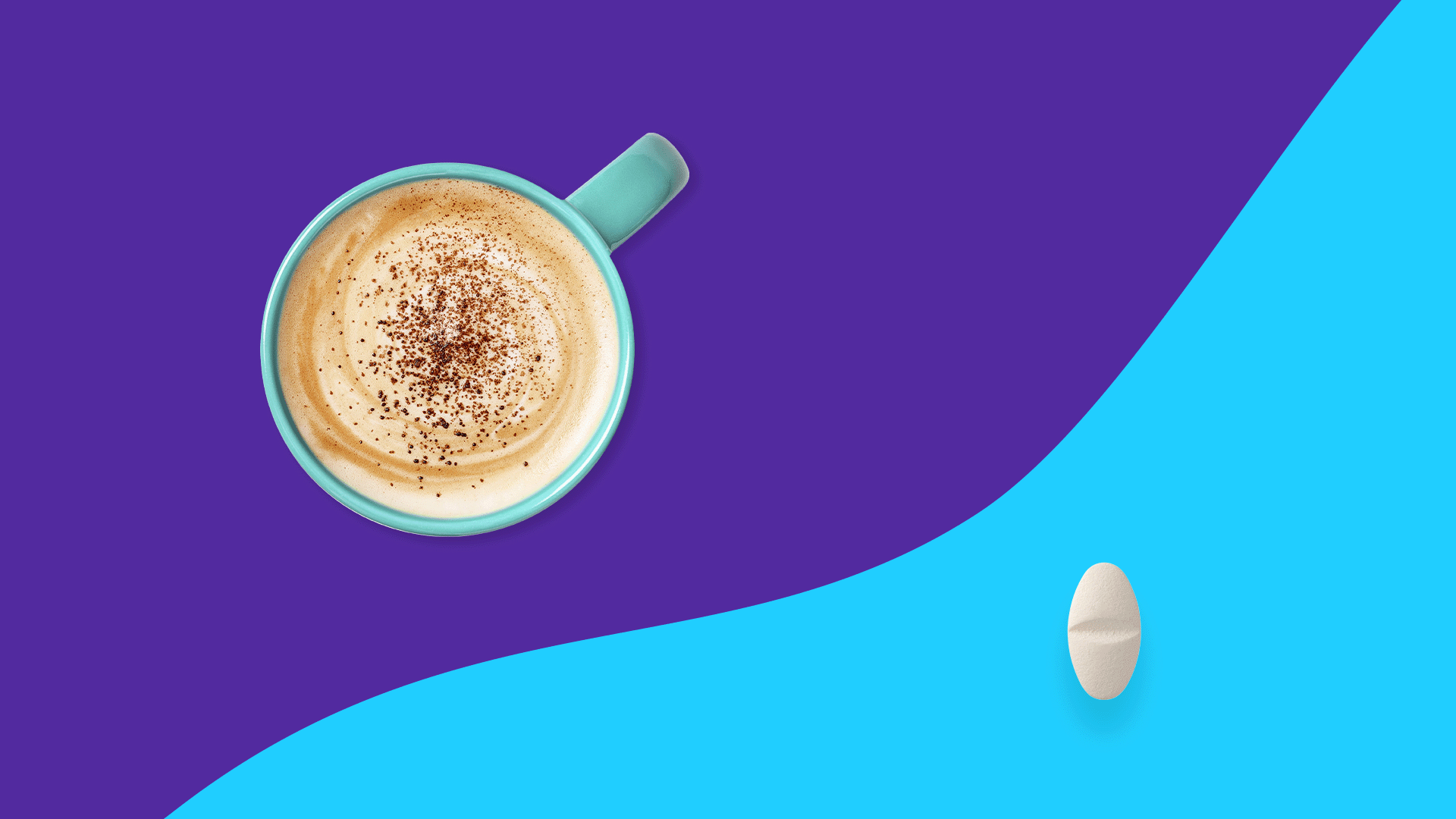Key takeaways
Mixing caffeine and gabapentin may reduce the effectiveness of gabapentin in preventing seizures, as suggested by animal studies.
Moderate consumption of caffeine is generally safe for individuals taking gabapentin, but it’s important to consult with a healthcare provider.
The FDA recommends a daily caffeine limit of 400 mg for healthy adults, which equates to about four 8 oz. cups of coffee.
Gabapentin can interact with other substances and medications, including alcohol, antihistamines, blood pressure medications, pain medications, and antidepressants, so it’s crucial to discuss potential interactions with a healthcare provider.
Gabapentin and caffeine | Gabapentin and coffee | Gabapentin interactions
If a cup of coffee is your go-to remedy for morning grogginess, welcome to the club. The average American coffee drinker downs more than three cups per day, according to the National Coffee Association.
Caffeine is a popular way to wake up—it stimulates your central nervous system, heart, and muscles. While some studies suggest that moderate consumption of coffee is healthy, even linked to a lower likelihood of conditions such as Type 2 diabetes and heart disease, it can be detrimental if you use certain prescription medications to manage them. Caffeine can interact with some medications by heightening or lessening the intended effect.
If you take gabapentin (or the brand name Neurontin)—an anticonvulsant medication prescribed to treat seizures and certain types of pain—here’s what you need to know about combining it with caffeine.
How does caffeine affect gabapentin?
“Gabapentin usually increases the threshold for seizures,” says David Vossler, MD, chair of the American Epilepsy Society’s Council on Clinical Activities and a clinical professor of neurology at the University of Washington. “It makes the hurdle higher so the seizure can’t get over that hurdle.” When the mice in the study had too much caffeine—akin to drinking too many shots of espresso or cans of Red Bull—the hurdle was lowered. Meaning, it was more likely a seizure could occur.
It’s not the first study to establish a link between caffeine intake and a decrease in the effectiveness of anticonvulsant medication. “There have been some animal studies with the older anti-seizure drugs,” Dr. Vossler says. “There was a review article published in 2007 that did indicate that there were previous studies in which caffeine reduced the effectiveness of the older anti-seizure medications.” If you’re taking gabapentin for an off-label usage, the effects are unknown—but it may reduce effectiveness as well.
As this was an animal study, Dr. Vossler cautions using it as evidence to cut caffeine consumption and to speak with your doctor if you have concerns about seizures.
Can I drink coffee with gabapentin?
When consumed in moderation, it’s mostly okay to combine gabapentin and caffeine from coffee, as long as you have the green light from your healthcare provider. Just be mindful of how much caffeine you are consuming. For healthy adults, the FDA suggests 400 milligrams (mg) of caffeine as a daily limit. Here are the average amounts of caffeine in common drinks:
- 80 to 100 mg of caffeine in the average 8 oz. coffee cup, depending on how it’s brewed
- 30 to 40 mg in a 12 oz. can of a caffeinated soft drink
- 30 to 50 mg in an 8 oz. cup of green or black tea
- 40 to 250 mg in an 8 oz. energy drink
If you’re a heavy coffee drinker, try substituting decaffeinated coffee or mixing half decaf and half regular to reduce the chance of a gabapentin-caffeine interaction.
Some OTC medications contain caffeine, but occasional use is unlikely to cause a problem when taken with gabapentin, says Thomas Franko, Pharm.D., an assistant professor of pharmacy practice at Wilkes University in Pennsylvania.
For example, there are 130 mg of caffeine in two tablets of Excedrin Migraine, which Dr. Franko says is one of the most common OTC meds with caffeine being used. “Excedrin has a comparable amount of caffeine to a standard cup of coffee,” Dr. Franko says. “Most people using Excedrin are using it to get rid of a headache. For migraines, it’s what we suggest as a first-line option.” This means the medication is used only as needed and not for daily use.
As long as you’re staying within a safe daily amount of caffeine—between what you drink and what meds you consume—you shouldn’t have a problem.
Are there other interactions with gabapentin?
Here are some examples of substances and medications that may interact with gabapentin:
- Alcohol
- Antihistamine-containing cold, cough, or allergy products
- Blood pressure medication including losartan and ethacrynic acid
- Pain medication such as morphine
- Antidepressants such as sertraline
This is not a full list of drug interactions, and others may occur. Talk to your healthcare provider about possible gabapentin interactions—but it can safely wait until after your morning cup of coffee.
RELATED: Gabapentin side effects | How much is gabapentin without insurance?



